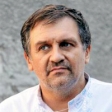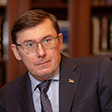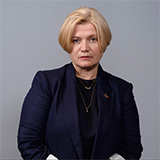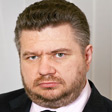World Intellectuals Support Euromaidan (Letter in ''The Guardian'')
Звернення світової інтелектуальної еліти на підтримку Євромайдану
Неофіційний переклад українською див. тут.
Support Ukrainians and they can help us build a fairer Europe
The Guardian, Friday 3 January 2014 21.00 GMT
These days, the world is closely watching Ukraine. Some of the recent developments, above all the recurrent attempts of the government to use violence against peaceful demonstrators, raise a serious concern. We, representatives of the international academic community, are especially troubled by the fact that violence and harassment quite often is targeted at youth, very often journalists, university students and young faculty.
Such conduct by the Ukrainian government is destructive, both for the government itself and for the future of the country it represents.
In contrast to the government, Ukrainian society has displayed admirable civic maturity. Its determination to keep its protest within the realm of legality and its unwavering rejection of violence are a model for the defence of civil rights. Today, the Ukrainian Maidan represents Europe at its best – what many thinkers in the past and present assume to be fundamental European values.
We are calling on our governments and international organisations to support Ukrainians in their efforts to put an end to a corrupt and brutal regime and to the geopolitical vulnerability of their country. Ukraine needs a European Marshall-like plan that would ensure its transformation into a full democracy and society with guaranteed civil rights. In elaboration of a new policy towards Ukraine, we propose to draw a distinction between the Ukrainian government and Ukrainian society. While the former must be treated with a maximum of strictures, the latter deserves a maximum of support.
Let us help Ukrainians to build a new Ukraine – and then they surely will help us build a new Europe and a fairer world.
Nadia Al-Bagdadi Professor, head of department of history, Central European University, Budapest, Anne Applebaum Historian, journalist and writer, Warsaw, Andrew Arato Dorothy Hirshon professor in political and social theory, New School for Social Research, New York, Omer Bartov John P Birkelund distinguished professor of European history, Brown University, Zygmunt Bauman Professor emeritus, University of Leeds, Ulrich Beck Professor, Munich University and London School of Economics and Political Science, Seyla Benhabib Eugene Mayer professor of political science and philosophy, Yale University, Josetxo Beriain Professor, Universidad Pública de Navarra, Richard J Bernstein Vera List professor of philosophy, New School for Social Research, Rajeev Bhargava Professor and director, Centre for the Study of Developing Societies, Delhi, Giovanna Brogi Bercoff Professor, University of Milan, Boris Buden Writer and philosopher, Berlin, Craig Calhoun Director, London School of Economics and Political Science, José Casanova Professor of sociology and senior fellow, Berkley Center for Religion, Peace and World Affairs, Georgetown University, Julian Casanova Professor of history, University of Zaragoza, Dr Velvl Chernin Poet and literary scholar, Ben-Gurion University of the Negev, Roberto Cipriani Professor, University Roma Tre, Krzysztof Czyżewski President, Borderland Foundation, Poland, Alessandro Ferrara Professor, University of Rome "Tor Vergata", Istvan Deak Seth Low professor emeritus of history, Columbia University, Rafael Díaz-Salazar Professor, Universidad Complutense Facultad de Ciencias Políticas y Sociología, Madrid, William Douglass Professor emeritus, Center for Basque Studies, University of Nevada, Reno, François Dubet Professor, École des Hautes Etudes en Sciences Sociales, Paris, Carlo Ginzburg Franklin D Murphy professor emeritus of Italian renaissance studies, University of California, Los Angeles, Jeffrey C Goldfarb Micheal E Gellert professor of sociology, New School for Social Research, Dr Semion Goldin Senior research fellow, Nevzlin Research Center for Russian and East European Jewry, Hebrew University, Nilüfer Göle Directrice d'études, École des hautes études en sciences sociales (EHESS), Centre d'Analyse et d'Intervention Sociologiques (CADIS), Paris, Felix M Goni Professor, University of the Basque Country, Bilbao, Andrea Graziosi Professor, University of Naples Federico II, Irena Grudzinska Gross Research scholar, Princeton University, Mark von Hagen Arizona State University, Tomáš Halík Professor, Charles University Prague, Danièle Hervieu-Léger Professor, École des Hautes Etudes en Sciences Sociales, Paris, Roald Hoffmann Frank HT Rhodes professor of humane letters emeritus, Cornell University; Noble laureate in chemistry, José Ignacio-Torreblanca columnist, El Pais, Maria Janion literary theorist, Polish Academy of Sciences, Andreas Kappeler Professor, University of Vienna, Hans G Kippenberg Wisdom professor for comparative religious studies, Jacobs University, Bremen, János Kis Professor of philosophy and political science, Central European University, Budapest, Zenon Kohut Professor, department of history and classics, University of Alberta, Ivan Krastev Chairman of the Centre for Liberal Strategies, Sofia, Mark Leonard Director of the European Council on Foreign Relations, Maria Lewicka Professor, University of Warsaw, Arien Mack Alfred J and Monette C Marrow professor of psychology, New School for Social Research, Katherine Marshall Visiting professor, School of Foreign Service, Georgetown University, David Martin Professor emeritus, London School of Economics, Elzbieta Matynia Professor of sociology and liberal studies, New School for Social Research, Andrzej Mencwel Professor emeritus, University of Warsaw, Tariq Modood Professor of sociology, politics and public policy, University of Bristol, Gabriel Motzkin Professor and executive director, The Van Leer Jerusalem Institute, Alexander Motyl Professor, Rutgers University, Norman Naimark Robert and Florence McDonnell professor of eastern European studies, Stanford University, Claus Offe Professor, Hertie School of Governance, Berlin, Andrés Ortega Director, Research Department of the Spanish prime minister, Enzo Pace Professor of sociology of religion, University of Padua, Denis Pelletier, Directeur d'études, École pratique des hautes etudes, Paris, Alfonso Pérez-Agote, Professor emeritus of sociology, Universidad Complutense de Madrid, Serhii Plokhii Mykhailo Hrushevskyi professor of Ukrainian history, Harvard University, Antony Polonsky Albert Abramson professor of holocaust studies, Brandeis University, Jacek Purchla Professor, Jagiellonian University, Jacques Rupnik Professor, College of Europe in Bruges, Michael Sandel Anne T and Robert M Bass professor of government, Harvard University, Saskia Sassen Robert S Lynd professor of sociology, Columbia University, Richard Sennett Professor of sociology, New York University, Slawomir Sierakowski Director, Institute for Advanced Study in Warsaw, Marci Shore Associate professor of history, Yale University, Aleksander Smolar President, Stefan Batory Foundation, Warsaw, Alfred C Stepan Wallace S Sayre professor of government, Columbia University, Frank Sysyn Director, Peter Jacyk Centre for Ukrainian Research, Canadian Institute of Ukrainian Studies, University of Alberta, Charles Taylor Professor emeritus of Philosophy, McGill University, Bryan S Turner Presidential professor of sociology, The Graduate Center City University of New York, Jordi Vaquer Director, Open Society Initiative for Europe, Barcelona, Peter van der Veer Director, Max Planck Institute for the Study of Religious and Ethnic Diversity, Göttingen, Michael Walzer Professor emeritus, Institute for Advanced Study, Princeton, George Weigel William E Simon chair in Catholic studies, ethics and public policy center, Washington, DC, Raquel Weiss Professor, Universidade Federal do Rio Grande do Sul, Brazil, Michel Wieviorka Professor, École des Hautes Etudes en Sciences Sociales, Larry Wolff Director, Center for European and Mediterranean Studies, New York University, Eli Zaretsky Professor of history, New School for Social Research, Krzysztof Zamorski Professor, Jagiellonian University, Artur Żmijewski Art editor of Krytyka Polityczna, Slavoj Žižek Director, Birkbeck Institute for the Humanities, University of London
Блог автора – матеріал, який відображає винятково точку зору автора. Текст блогу не претендує на об'єктивність та всебічність висвітлення теми, яка у ньому піднімається. Редакція "Української правди" не відповідає за достовірність та тлумачення наведеної інформації і виконує винятково роль носія. Точка зору редакції УП може не збігатися з точкою зору автора блогу.







